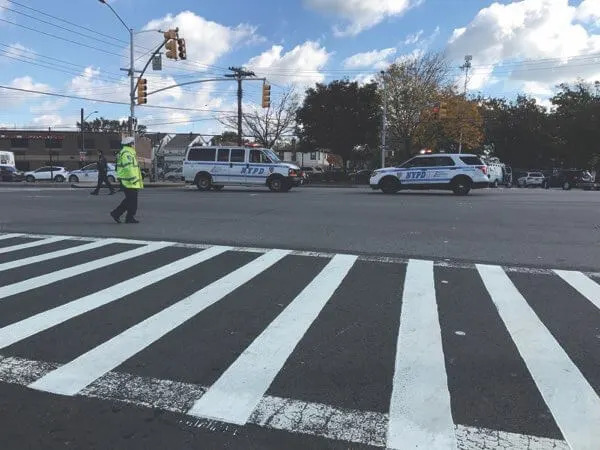By Matthew Monks
Fire Department response times have jumped an average 31 seconds in Astoria since one of the area’s engines closed last spring, a state legislator revealed this week.
Astoria is one of six neighborhoods in the city where response times have leapt since the mayor and fire commissioner closed six engines in May to cut costs, said state Assemblyman Jeffrey Klein, (D-Bronx), a staunch opponent of the closures.
Data he collected from the Fire Department show response times have spiked an average 13 seconds throughout the city since engines were closed in Astoria, Queens, Harlem, and the Greenpoint, Cobble Hill, Sunset Park, and Bedford-Stuyvesant neighborhoods in Brooklyn, Klein said.
When the engines were closed last year to save $6 million, Fire Commissioner Nicholas Scoppetta said at the time citywide response times would climb an average of only one second.
“Clearly the commissioner hasn’t kept his promise because response times have gone up 13 seconds,” Klein said.
That could mean the difference between life and death during a fire or medical emergency like a heart attack, Klein said.
“Speed is everything, seconds do matter,” he said.
Klein’s report gauges response times from June 2003 to January 2004 for medical and fire calls in the neighborhoods where engines closed.
Average response time for all calls in the vicinity of former Engine 261 in Astoria was 5 minutes 22 seconds; 26 seconds above the city average and the highest overall response time in neighborhoods where engines closed.
It took fire companies covering 261’s area an average of 5 minutes, 10 seconds to respond to structural fires and 5 minutes 11 seconds to medical emergencies, Klein’s report states.
Those numbers are more than a half-minute over the average response times for fire and medical calls in other neighborhoods, the report said.
“It is clear from these numbers that we have the highest response times by any of the areas,” said City Councilman Peter Vallone Jr. (D-Astoria). “The mayor needs to admit that he made a mistake as it relates to 261 and reopen those firehouses.”
Engine Company 261, which was located at 37-20 29th St., was a keystone company, Vallone said, covering several high-profile terrorist targets, including the Queensboro Bridge, Triboro Bridge, Queens Midtown Tunnel, and both New York City airports. It also was the first responder to Roosevelt Island, he added, where the population is predicted to double in coming years.
Emergency services must respond promptly in such vital areas, Vallone said.
“It would help if they open all the firehouses, but 261 has to be their priority,” he said.
Fire officials deny the closures have affected response times, attributing the increases to bad weather and the Aug. 14 blackout, which they said caused extensive delays and spikes in the averages.
“We had four of the six areas where engines are closed still experiencing response times below the city average” of 4 minutes 56 seconds, said department spokesman Mike Loughran.
He added that the two other neighborhoods had response times below the national average of six minutes.
FDNY spokesman Jim Long said there are 18 fire companies in and around Astoria, and the four engines which picked up 261’s beat — Engines 258, 260, 262 and 325 — have had no problems shouldering the additional calls.
“Everything is running smoothly. The closure of Engine 261 has not compromised our ability to respond,” Long said. “We’re still below the national average.”
Klein dismissed the Fire Department’s explanation that blackouts and bad weather spiked response time averages, saying officials failed to do an appropriate cost-benefit analysis before closing the engines.
“It’s nonsense,” Klein said. “We factored in the high number of calls during the blackout in August — yes, the numbers were larger in August, but (it) seemed to work out in the end looking at the eight-month period.”
As chairman of the Assembly’s Committee on Oversight, Analysis and Investigation, Klein said he wants the fire commissioner to explain how he plans to rein in citywide response times.
In his opinion, the city should reopen the six engines to speed up responses. Since the city and state budget forecasts are improving, he said legislators should be able to find the $6 million it would cost to open their doors, possibly by including the funds in an aid package.
“Certain things in government are sacred and it’s always been police and fire,” Klein said. “I think the (mayor and) fire commissioner broke that rule here.”
Reach reporter Matthew Monks by e-mail at news@timesledger.com or by calling 718-229-0300, Ext. 156.






























